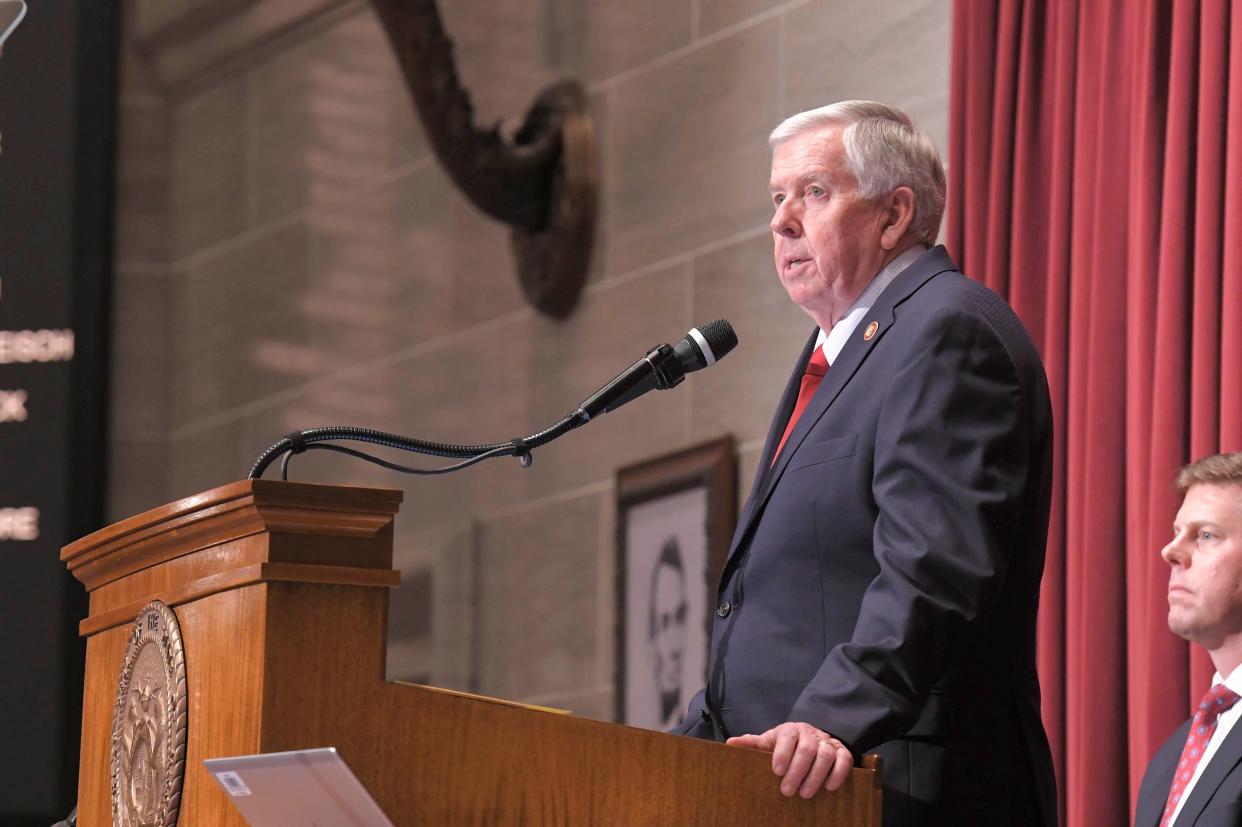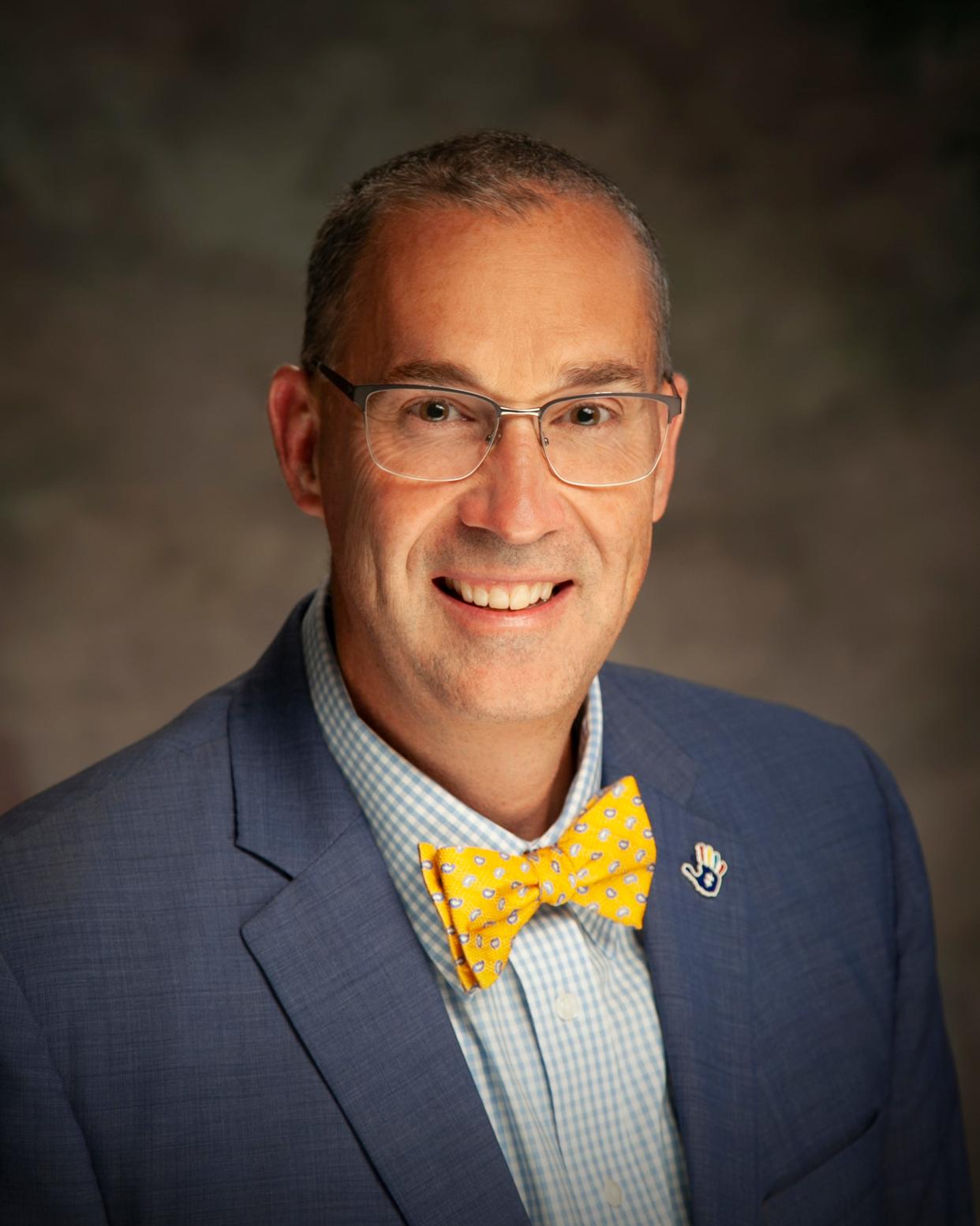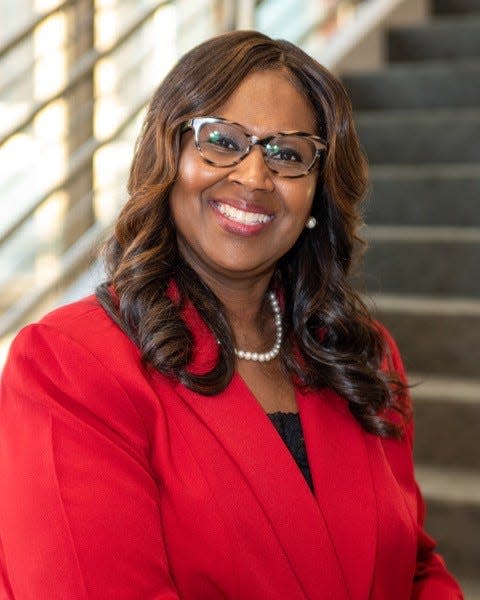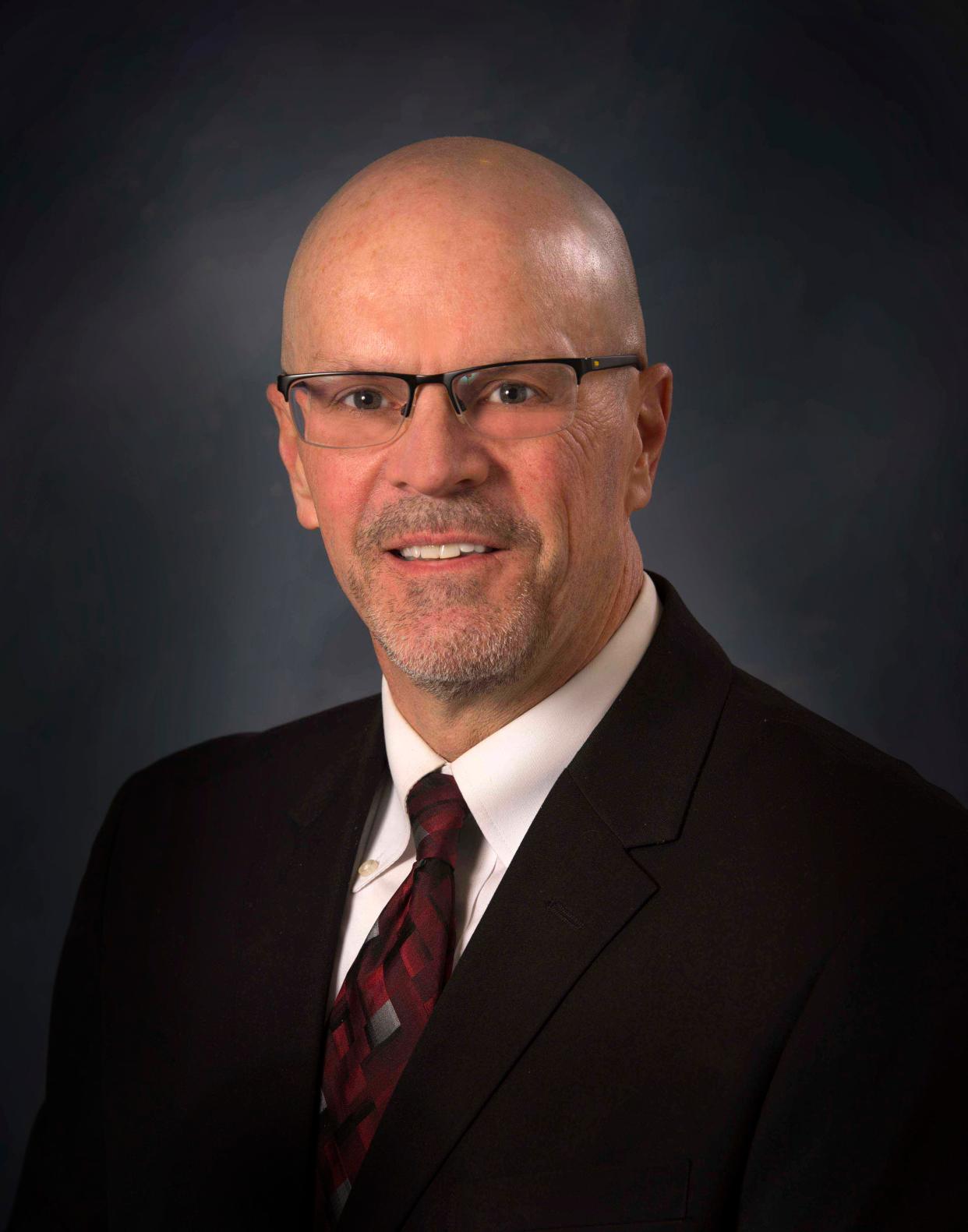Gov. Parson signs omnibus education bill despite pleas from hundreds of MO school leaders

Hundreds of Missouri school officials wrote Gov. Mike Parson, asking him to reject an omnibus education bill they say will cast a long shadow of financial uncertainty.
Despite that, Parson's office announced Tuesday that he signed Senate Bill 727, which does the following:
Raises the minimum teacher pay to $40,000 a year and increases the minimum for a teacher with a master's degree and 10 or more years experience to $48,000 by 2027;
Increases all teacher salaries by the January Consumer Price Index report, with a cap of 3% annually;
Expands access for Missouri's Empowerment Scholarship Accounts, which is a voucher tax credit program;
Permits charter schools to open in Boone County;
Provides incentives for districts in cities with 30,000 or more residents to operate on a five-day school week.
Coupled with House Bill 2287, which was also signed, the legislation also increases state funding for early childhood education, protects benefits for educators who keep teaching after retirement, and increases the small school grant funding program.
"I have and always will support Missouri teachers. Since the beginning of our administration, we've looked at ways to increase teacher pay and reward our educators for the hard work they do, and this legislation helps us continue that progress," said Parson, in a news release.
"We ask a lot of our educators when it comes to teaching and caring for our children. Together, this legislation supports Missouri students, teachers, and families with more educational opportunities to succeed — including additional investments in pre-k — while ensuring our teachers earn a better wage."
The hundreds of letters sent to Parson were gathered and forwarded by the Missouri School Boards' Association and the Missouri Association for School Administrators.
The messages from superintendent and elected school board members argued parts of Senate Bill 727 were driven by the best of intentions — especially, a commitment to improve pay for classroom teachers and raise annual salaries to keep up with inflation.
However, they believed many the changes that would happen as a result of the bill will negatively impact public education.

"There are a lot of good things camouflaged in (the bill)," said Bolivar Superintendent Richard Asbill. "In my experience, when you get a bill camouflaged with a lot of good things, it is important that taxpayers — and, in my case, superintendents — and boards of education be careful about what are the hidden costs behind those things."
Asbill said as governor, Parson has a track record of supporting public education, listening to local school districts and increasing funding for the classroom.
"There are enough positive things in (the bill) that makes it difficult for him not to support it," Asbill said before the bill signing." I just hope the governor looks at the legacy that he has, that he has earned, and makes the decision that not all of 727 is right for Missouri. It is not right for Missouri taxpayers."
Superintendent Grenita Lathan was one of the more than 300 school leaders who wrote Parson. She and many others listed three overarching concerns:
Expansion of an unaccountable, ever-growing voucher tax credit program;
Unprecedented expansion of charter schools to eight fully accredited school districts in Boone County; and
Mandatory increases to teacher salaries with no dedicated funding source.
Many of the letters pointed out the initial 12-page bill became a 167-page omnibus bill. The early fiscal note of $9.1 million is now estimated at more than $476 million.
"This bill was labeled as a 'compromise.' However, we do not see it as such," wrote Lathan in the April 26 letter. "While this bill contains promises of future funding, we are of the opinion that the state will be unable to fulfill these promises."

Lathan wrote that the cost of educating students in Missouri will grow significantly at a time when local revenue is relatively flat or slow growing.
She and others worried that the state funding for the voucher tax credit program, which helps students who want to attend non-public schools, will grow rapidly and create a strain on the state budget and squeeze the amount available for public schools.
Across Missouri, most districts devote 80% of the operating budget for employee pay and benefits.
"While our school district is currently above the minimum salaries prescribed in SB 727, the bill specifies that those minimum salaries will increase due to inflation in future years," Lathan wrote. "Our concern is that the funding we receive from the state and from our local taxpayers does not increase with the rate of inflation."
Asbill, of Bolivar, said the voucher tax credit program and the expansion of charter schools will have a direct impact on public schools.
"They have an endless supply of taxpayer money that will be driven to them. That will take money away from, in our case, Bolivar and Polk County school districts," Asbill said. "We may not have a charter school right here in Bolivar but we will see the impacts."
More: MO legislature passed an omnibus education bill. What does it mean for local schools?
The bill raised the minimum teacher pay in Missouri from $25,000 to $40,000 starting with the 2025-26 school year. Districts will have a little longer, until 2027, to make sure experienced teachers with master's degrees are paid at least $48,000.
Asbill said the Bolivar district asked voters to approve a tax levy increase recently to boost employee pay, which was approved. He worried the automatic cost-of-living raises built into the bill may be too expensive for districts without more state funding.
"It's just not possible for our local economy," he said.
MSBA collected letters from more than 200 members representing a total of 92 school boards. The districts were different sizes.
In southwest Missouri, there were letters from school board members in many districts, including Branson, Nixa, Strafford, Walnut Grove, and Willard.
Several school boards, including Joplin, passed a resolution. In Thayer, the district sent letters from teachers.
In a cover letter, MSBA said there were school boards that feared they would need to quickly seek tax levy increases to cover the higher costs prompted by the legislation.
"These districts are small and rural and SB 727 could lead to the closure of these districts if the state does not meet funding promises or local taxpayers are unable or unwilling to meet this new state-mandated tax burden," MSBA wrote in a note accompanying the letters.

Doug Hayter, executive director of the Missouri Association of School Administrators, helped gather and forward letters from superintendents to Parson.
"It is our understanding that hundreds of contacts — letters, emails, calls, etc. — have been submitted to the governor's office expressing various concerns with the bill," Hayter said.
Asked for a list of districts in southwest Missouri that corresponded with the governor to raise questions or request a veto, MASA provided a list of more than 60 from the state's largest, Springfield, to the relatively small Everton.
For example, the districts in Greene County included Ash Grove, Republic, Springfield, and Willard. A smattering of larger area districts that reached out to the governor included Bolivar, Branson, Joplin, Lebanon, Logan-Rogersville, Marshfield, Nixa , Ozark, Reeds Spring, and Webb City.

"There are a lot of unknowns," said Clever Superintendent Brian Breeden.
He said the legislation will add expense without guaranteed local or state revenue at a time when many districts face tough spending decisions due to the end of federal pandemic relief funds.
"It's been a really difficult year planning for the budget, just kind of looking at what is going to happen," he said.
This article originally appeared on Springfield News-Leader: Gov. Parson signs omnibus ed bill despite pleas from MO school leaders
